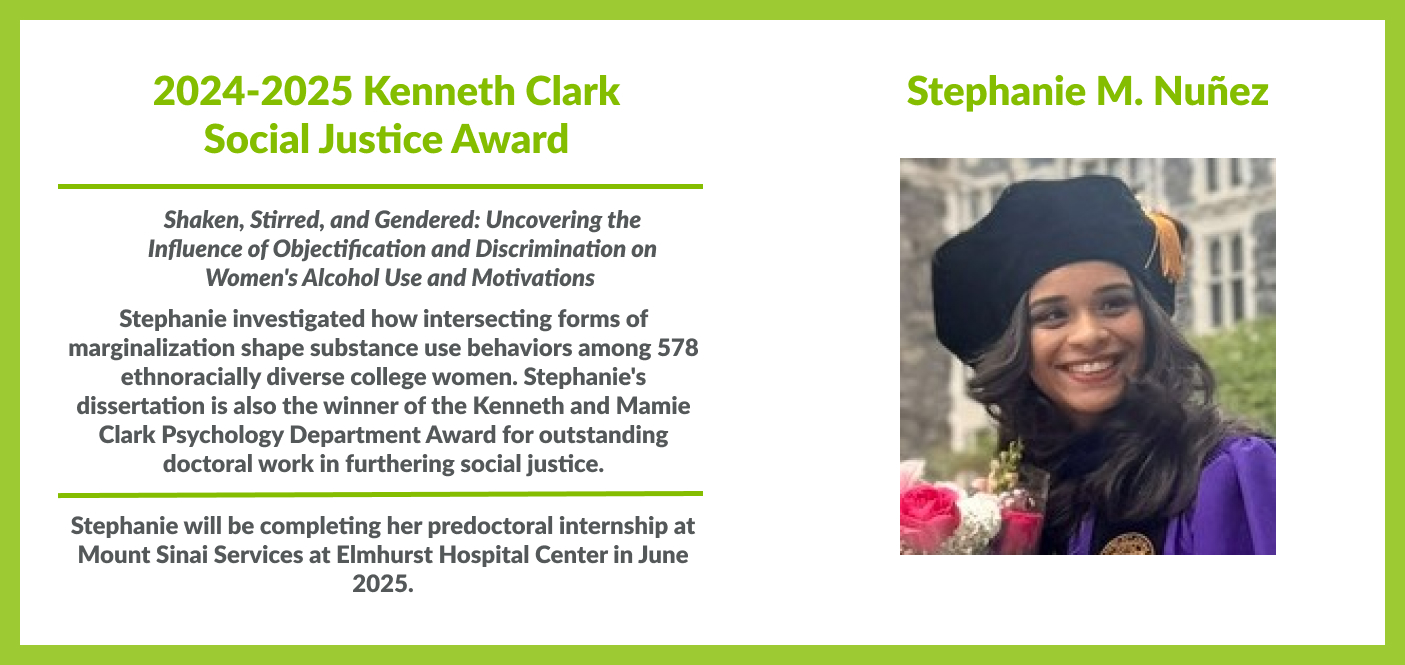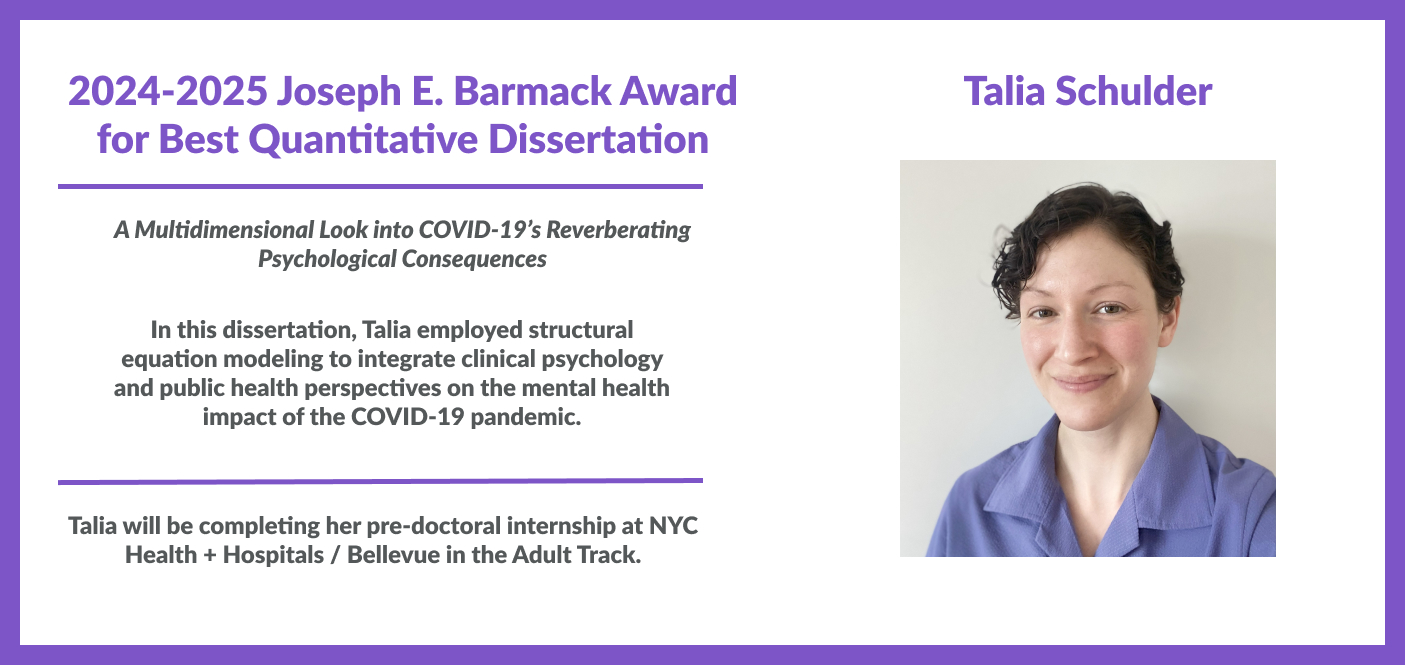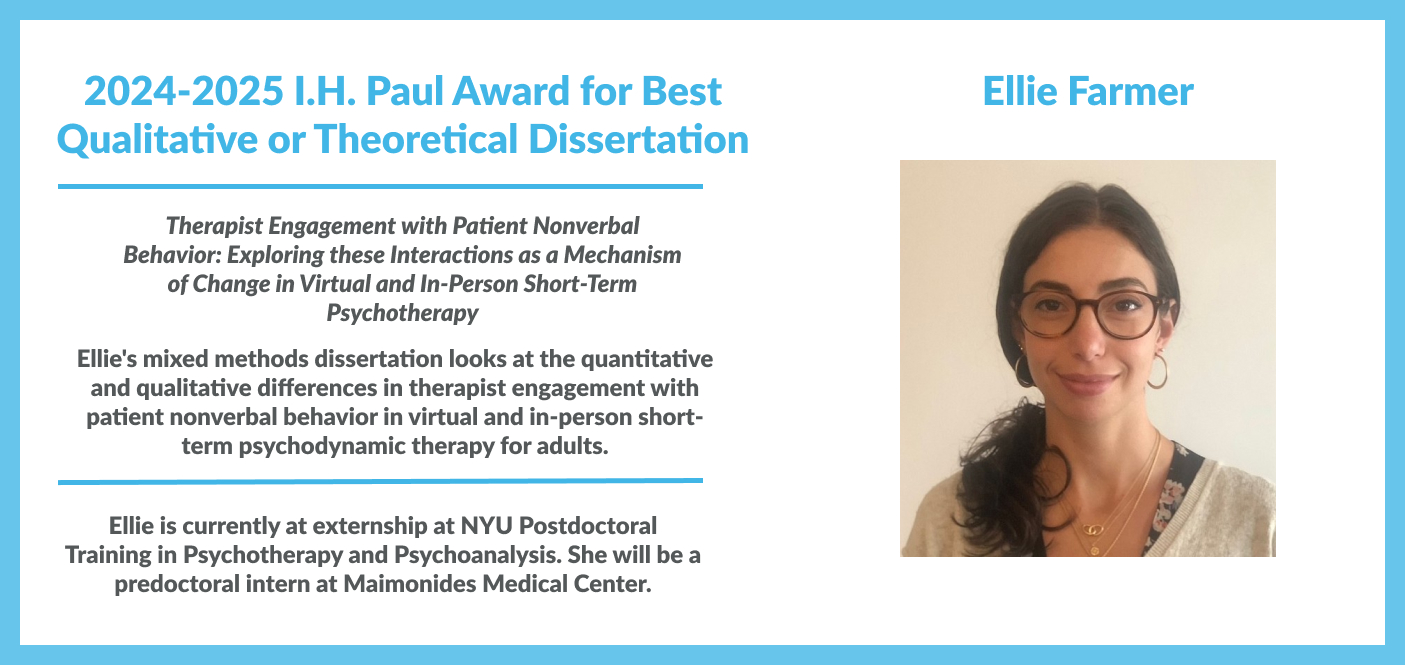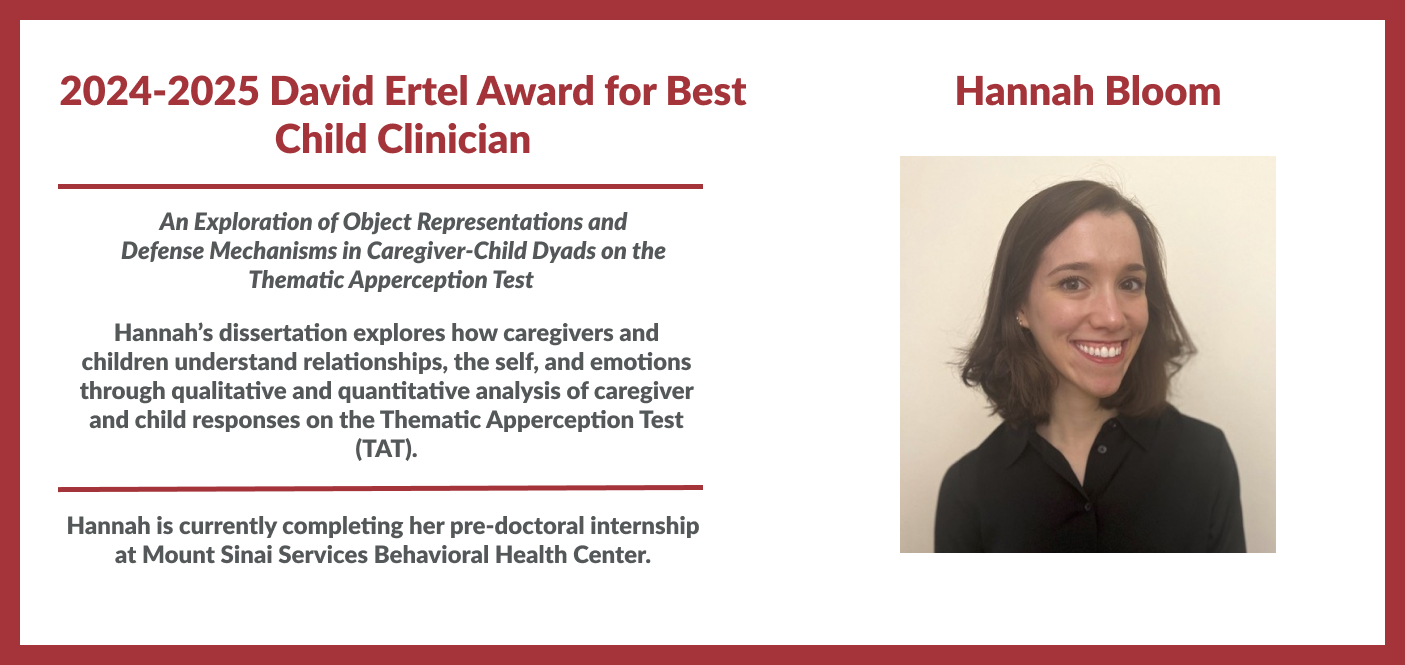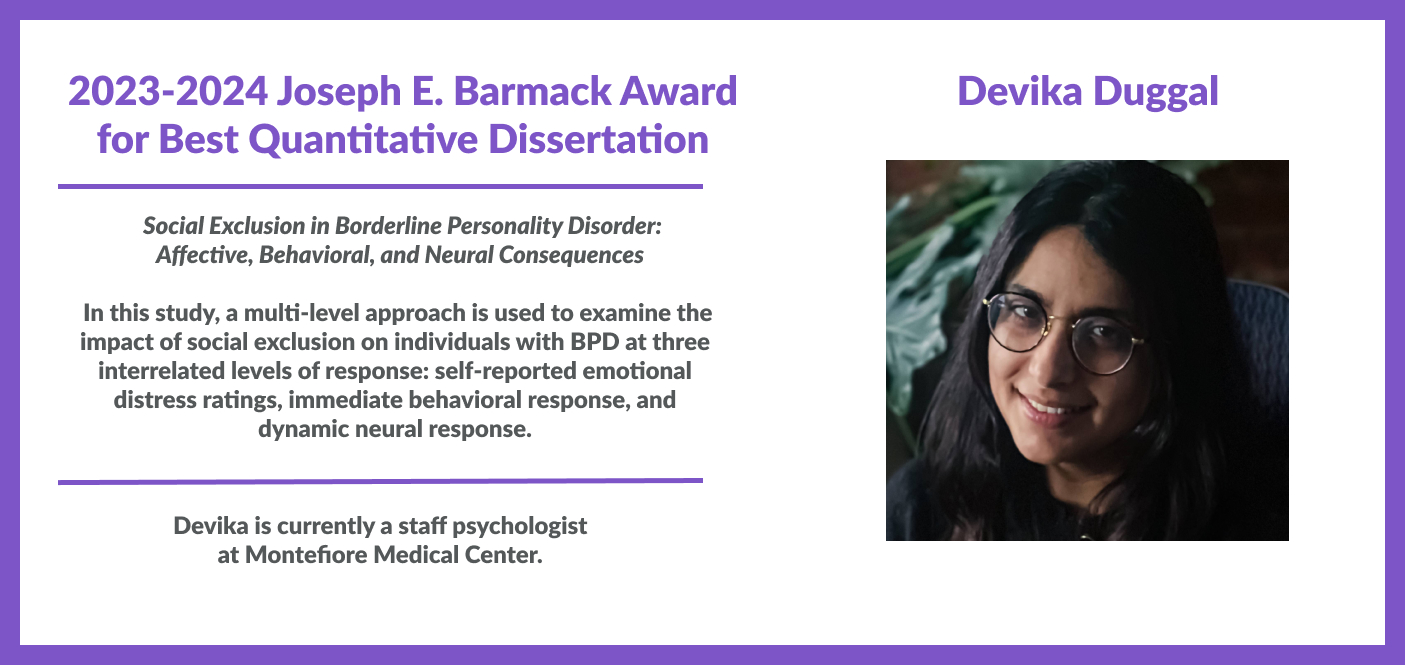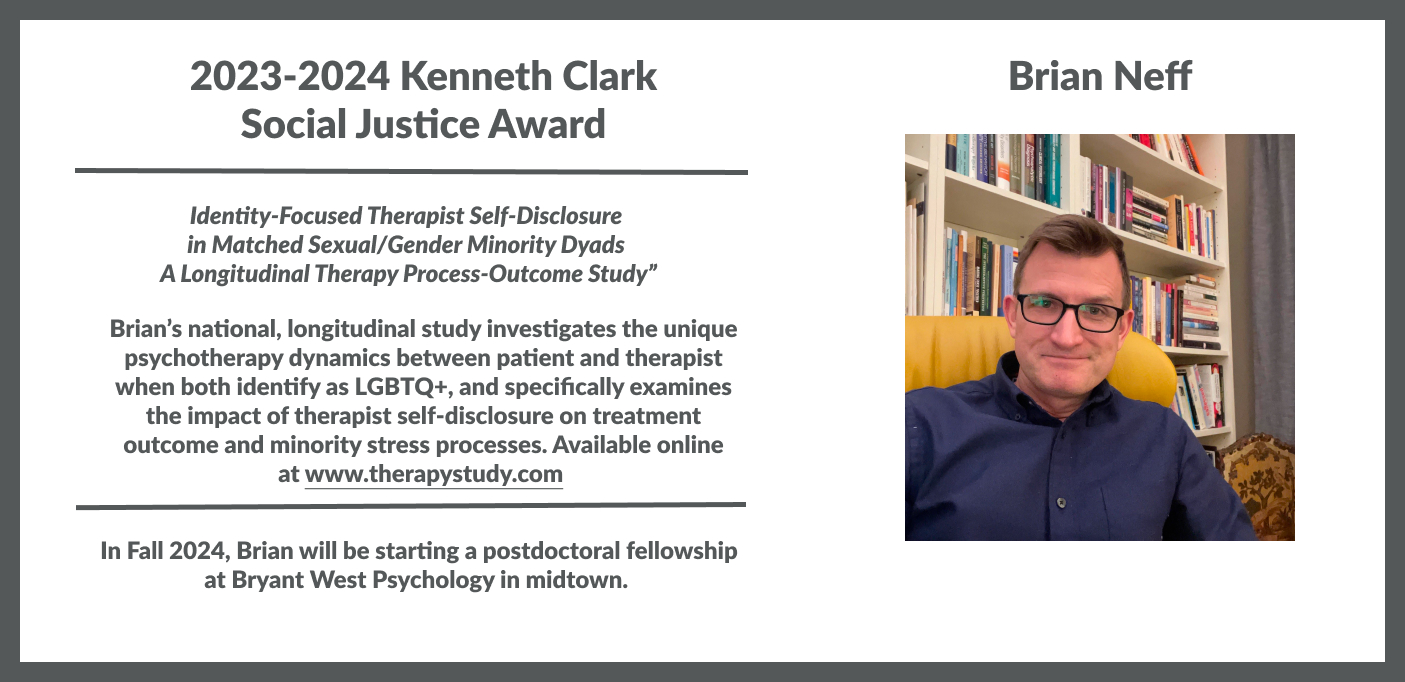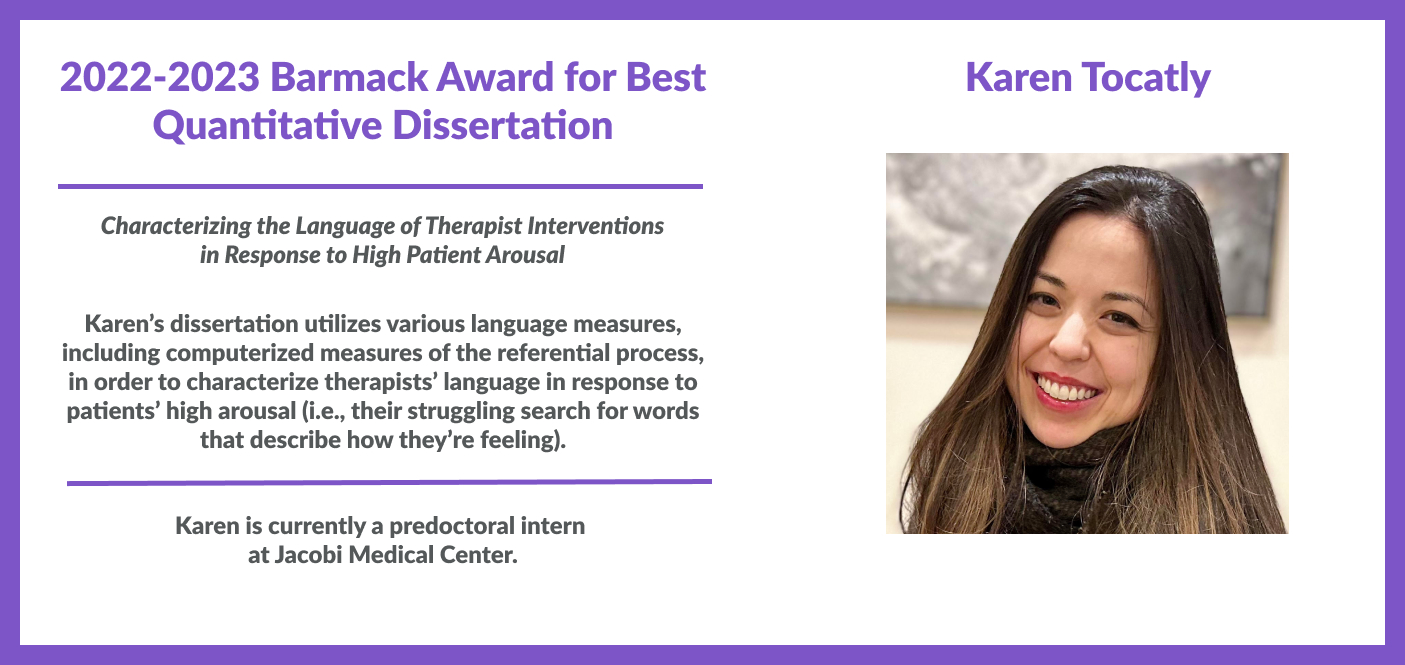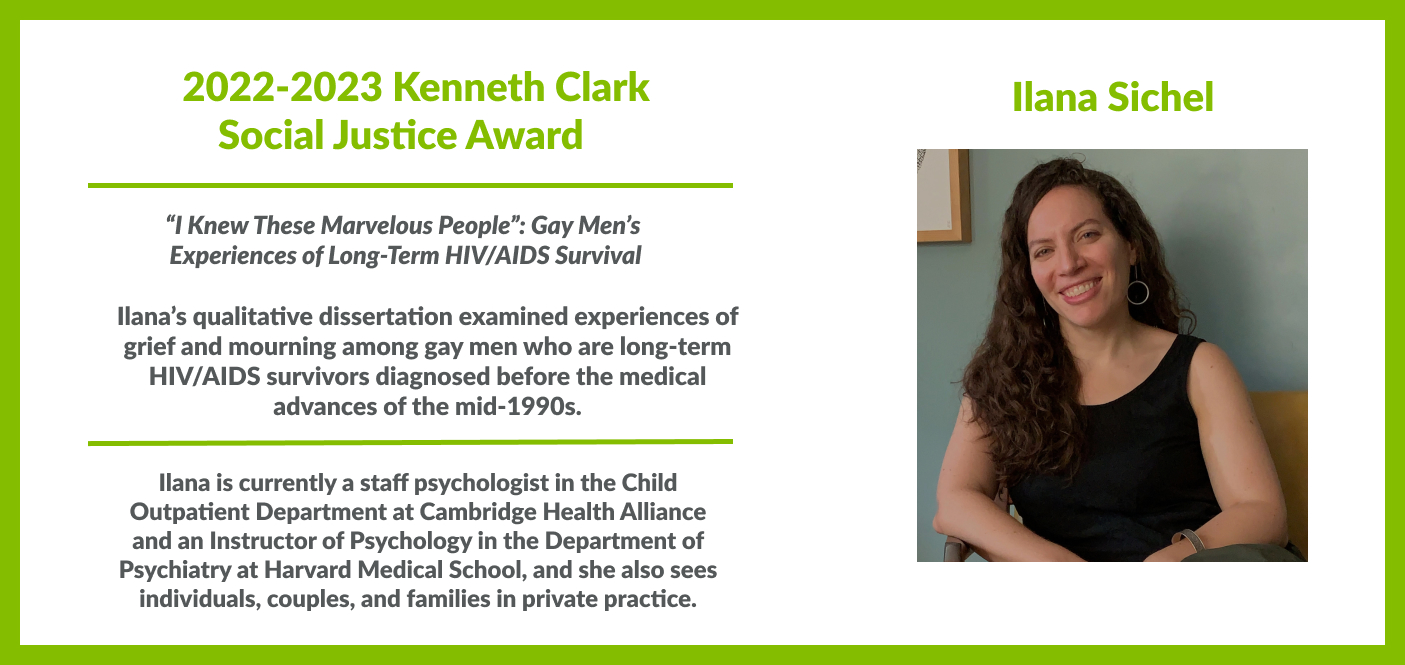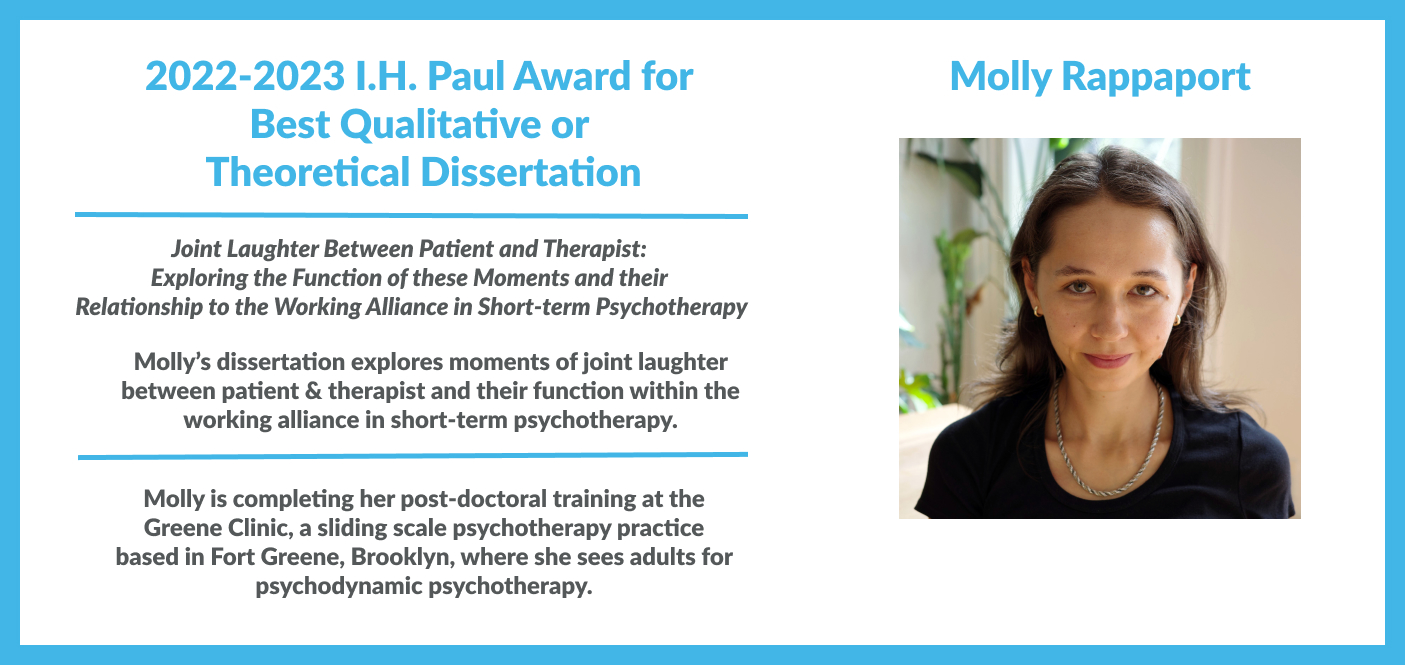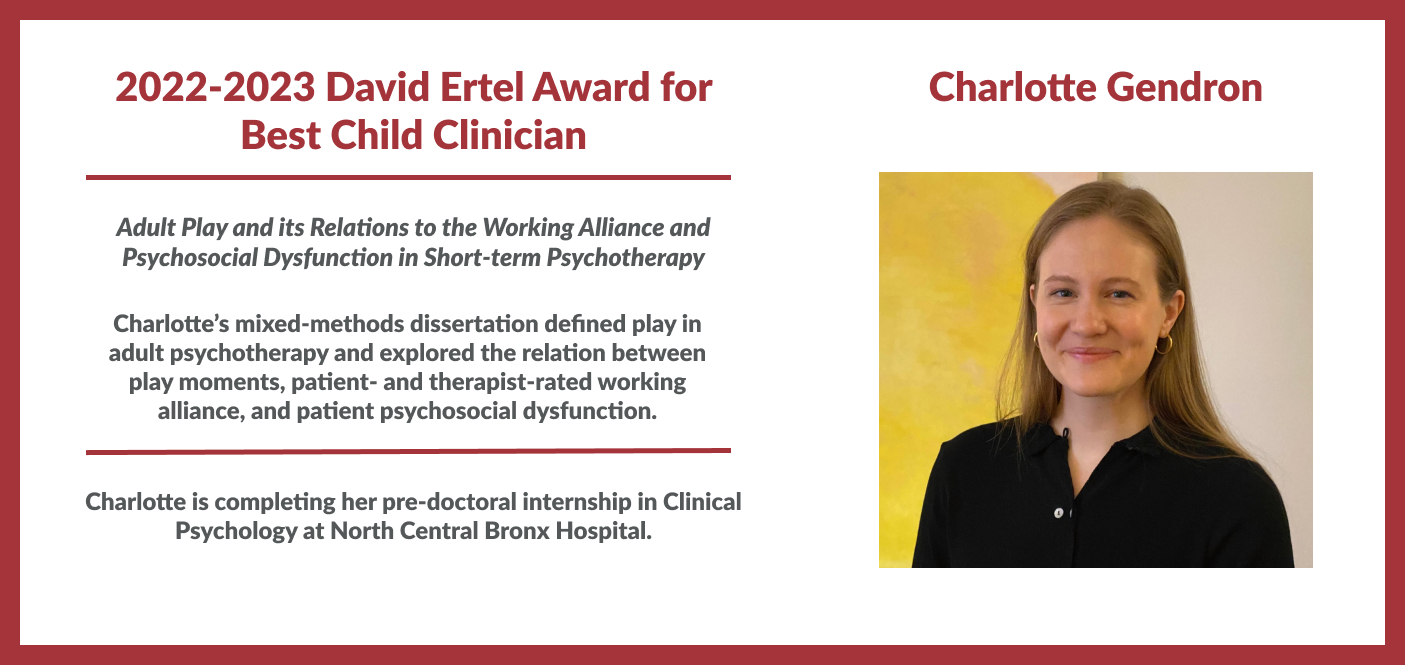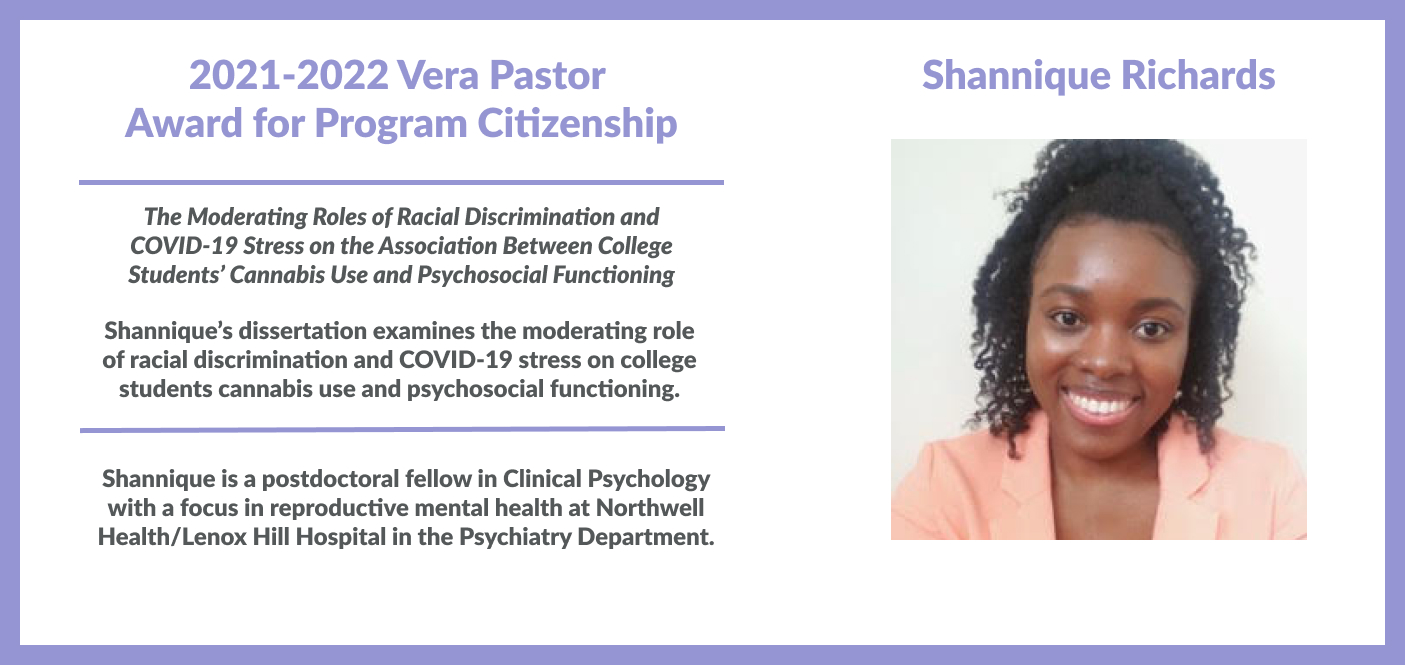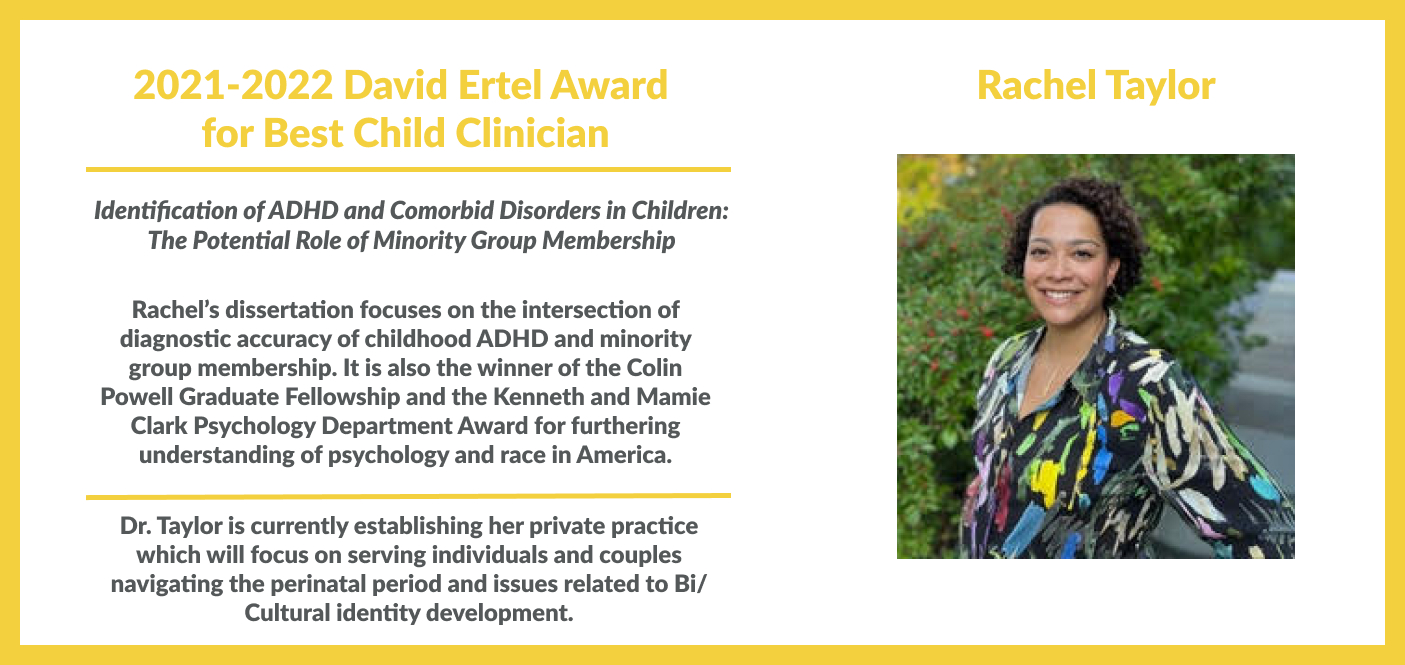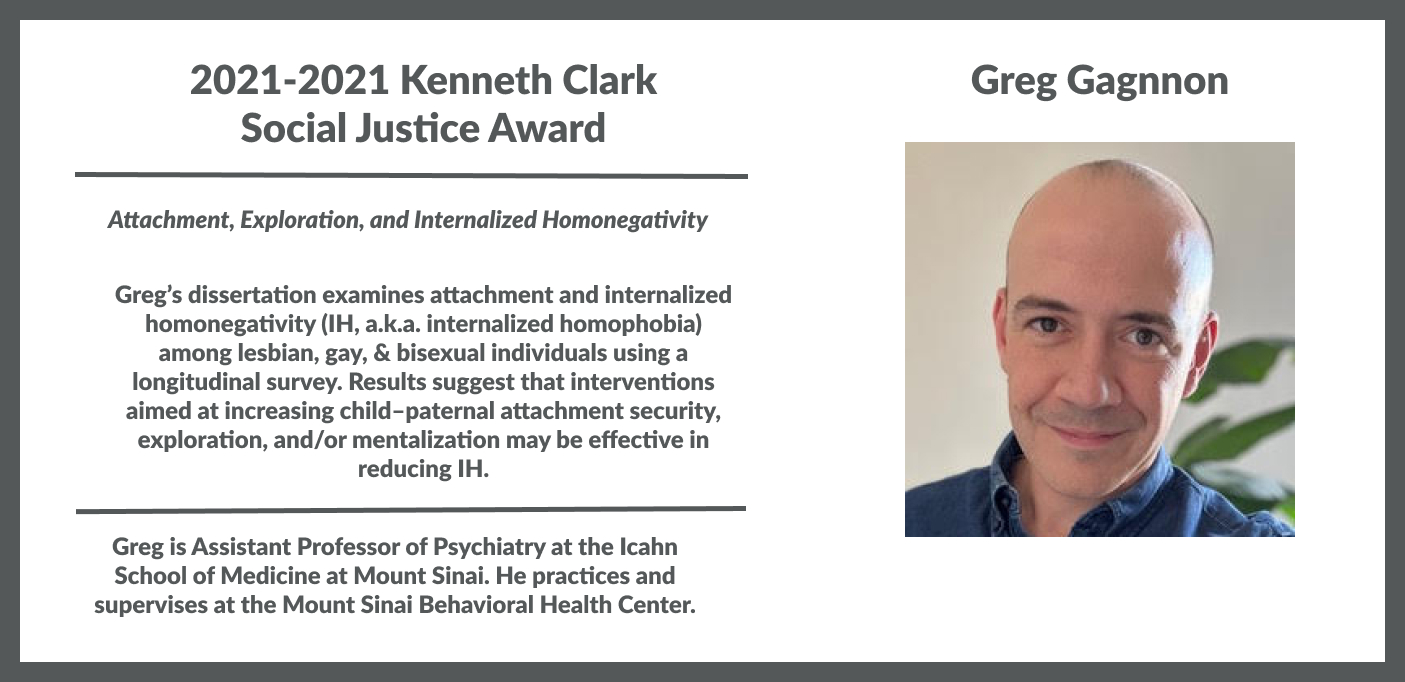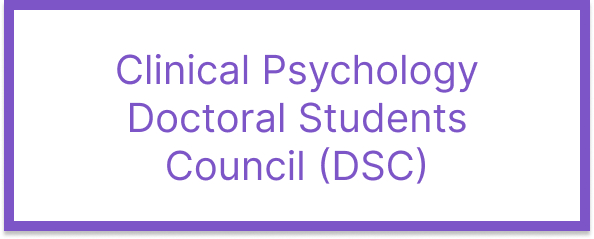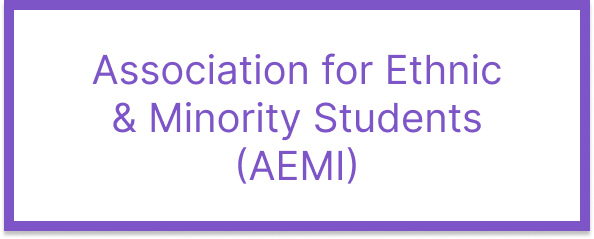Doctoral Student News, Groups, & Dissertation Awards

Student Awards 2024-2025
Student Awards 2023-2024
Student Awards 2022-2023
Student Awards 2021-2022

The City College Doctoral Students Council, formed in 2016, serves students currently enrolled in the Doctoral Program in Clinical Psychology at City College. Its stated purpose is to: (a) provide a forum for discussion of matters pertaining to the welfare of students in the City College Clinical Psychology Doctoral Program; (b) provide a formal means of communication between students and faculty regarding issues that affect the student body; (c) contribute to the recognition and integration of graduate students at the City College Clinical Psychology Doctoral Program; (d) foster unity among graduate students at the City College Clinical Psychology Doctoral Program by sponsoring social activities and other events; (e) strive to continuously improve the standards of the academic experience of the City College Clinical Psychology Doctoral Program’s graduate students; and (f) coordinate student body meetings and monthly meetings with the Clinical Psychology Doctoral Program Leadership Team. The group is composed of representatives from each cohort, AEMI and Q&A, and meets monthly on Friday evenings. All students are welcome to attend these meetings.
AEMI (Association for Ethnic and Minority Issues) is a student-led organization for students in the Clinical Psychology doctoral program at the City University of New York that aims to improve diversity, equity and inclusion in our program and field. AEMI acts as a liaison between graduate students and faculty in order to prioritize anti-racism ideals while striving to dismantle supremacy culture. AEMI endeavors to create a safe and supportive network for students while facilitating antiracist change by amplifying BIPOC voices within the program. Its monthly meetings focus on addressing issues of oppression, privilege and power inherent in academic settings as well as discussing ideas for initiatives that diversify our curriculum and clinical training. AEMI examines the impact of race, ethnicity, and culture in our personal and professional lives—noted in our interactions within the academic community as well as our work as clinicians in a community outpatient mental health clinic. In addition, students involved with AEMI engage in the following activities: Host annual open houses for prospective applicants of color; collaborate with faculty towards maintaining a diverse student body by participating in the clinical program’s admissions process; represent AEMI interests in discussions pertaining to program policy changes and implementation; invite clinicians and scholars whose work complements AEMI’s mission to speak at the program’s monthly colloquiums; outreach to CUNY campuses for minority student recruitment to the program; host social events for students in the program. All students in the doctoral program are encouraged to participate in AEMI. We have a listserv that we use to share relevant information and keep members apprised of AEMI meetings and events.
Queer & Allies (Q&A) is a student group @ CCNY's Clinical Psychology PhD program that actively seeks to provide recognition, dialogue, and action around issues of sexuality and gender within psychology and the greater world. Q&A is here to create community amongst queer and allied psychologists-in-training, cultivate queer joy through advocacy, education, and third spaces as well as promote greater literacy of Queer Mental Health for all in the program.
Last Updated: 09/05/2025 08:06
